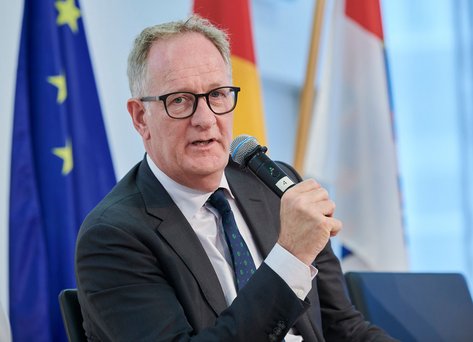 studioroman
studioroman
Get digital.
But together please!
During the pandemic, it was the lighthouse par excellence: The COVID digital certificate. Simple technology – great benefit. People in the European Union (EU) could travel again and enjoy their freedom of movement. The success of the vaccination certificate lay in the fact that it was a collaborative project from the beginning. And its benefits were immediately noticeable. For each and every individual.
ed* Nr. 02/2023 – Chapter 2

Freedom of movement is an important freedom of EU citizens. Therefore, there must be good social protection and good digital services for the 13 to 15 million migrant workers.
Community action in the EU has been strengthened by the EU single market since 1993. With regard to technological progress, former Commission President Jean-Claude Juncker coined the term “digital single market” in 2014. In the strategy for a digital single market of 6 May 20151, the European Commission then made this idea more specific. Their core demands included better online access of consumers and businesses to goods and services; including public services.
Shortly before the outbreak of the coronavirus pandemic, the European Commission once again deepened its ideas for “shaping Europe’s digital future”2 and highlighted interoperability between public sector authorities as a key measure. Already here, the need for a recognised public electronic identity was pointed out so as to allow EU citizens to use their data and (public) services securely.
Then, on 9 March 2021, the European Commission presented its Digital Compass 2030.3 This resulted in the policy programme for 2030 “Road to the Digital Decade”. One of the core tasks of the programme is the digitisation of public services and social security. With millions of migrant workers, the aim is to ensure smooth, digital communication between social security institutions in the EU and their clients.
Unlike the digital COVID certificate, the political plans of the European Commission have remained quite abstract and are not (yet) noticeable in everyday life. Moreover, the initiatives for the digitisation of social security that have been launched in the meantime do not appear to be stringently coordinated. But the first good foundations have already been laid.

